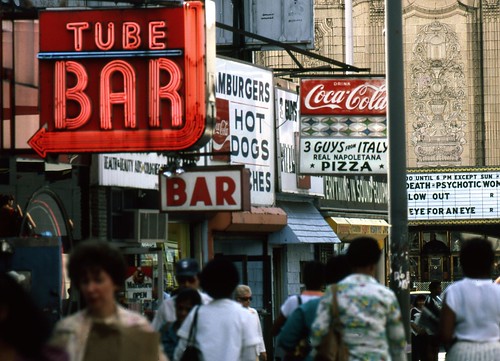If one comes from the premise that humans adore lurid tabloid melodrama, then this must be heaven on earth. As Henry Ford Sr. put it, famous for stumbling late into its study: "history is one damn thing after another" (with an emphasis on "damn" I'd add).
Welcome to purgatory? Or is that a euphemism?
Either way, admit you love it. Every day, another episode of As the World Turns.
Lofty intellectuals sometimes make scoffing noises regarding soaps, but then concoct their own special scandals, like the Bay of Pigs, or some other misguided display of derring-do. They want their place in the history books too.
I recall my little exercise when still a newly minted high school teacher, fresh from Princeton, now at St. Dominic Academy for young women (however defined). They were to a man (chuckle) General Hospital aficionados. That was the leading soap du jour.
I passed out 3x5 (5x8?) cards saying: "think of a soap opera plot, either one you've seen, or make it up, but substitute fancy titles, cast nobles and royalty, and turn them in." I read some choice examples. We all found it good fun. "Yep, that's history".
But of course history is more than just human soaps, or should be. The boundaries are fuzzy. We depend on geological time for our relatively fleeting chronologies.
You don't get diamond mine soaps, or oil well frenzies, or gold rushes, without diamonds, oil or gold. The relatively slow (superhumanly slow) and relatively fast (superhumanly fast) inform what goes on in the here and now (local scope).
In some of our literature, we connect more with these higher and lower frequencies, invisible to unaided senses, and paint our dramas accordingly.
They're still dramas (scenarios) but they’re maybe not soaps in the usual sense, of attracting lots of attention to the embedded advertisements.
The medio-sphere is characterized by commerce. Commerce depends on phenomena outside the medio (media) sphere. The soaps flow along in a middle-way channel that's comfortingly comprehensible, a trough, a place to pig out.

